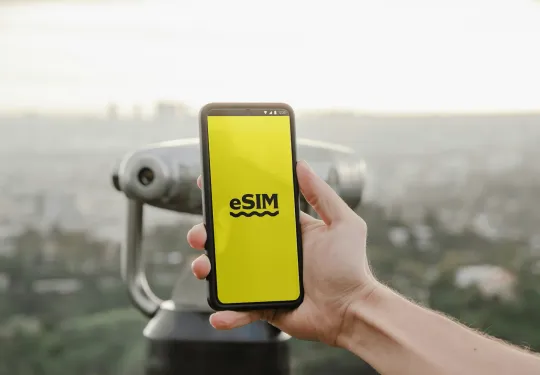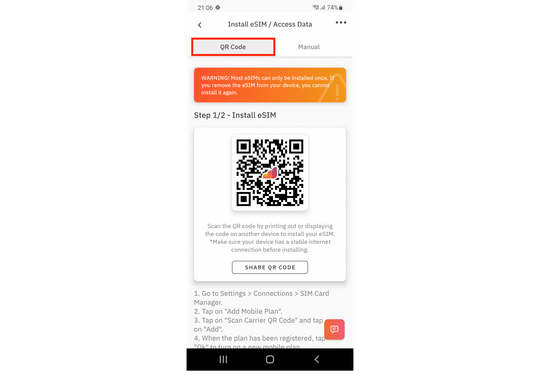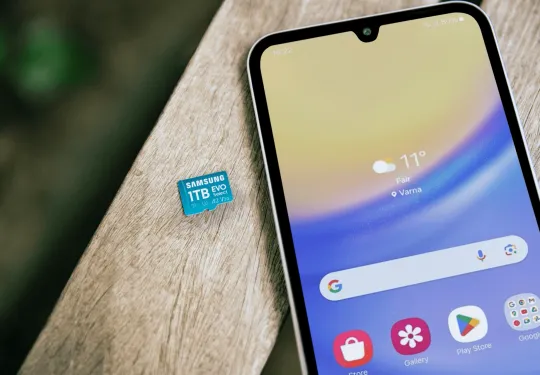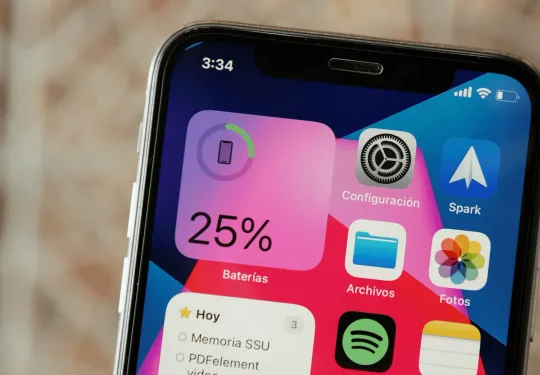Android eSIM Issues: Comprehensive Troubleshooting Guide (2024)
Summary:
eSIM technology is transforming how we stay connected, especially for Android users who value flexibility and convenience. Whether you’re traveling internationally, switching networks, or managing multiple plans, an eSIM eliminates the need for a physical SIM card.
However, Android users may encounter issues such as activation errors, connectivity problems, or eSIM compatibility concerns. This troubleshooting guide addresses the most common Android eSIM issues and provides actionable solutions to keep you connected.
Android eSIM Issues: Comprehensive Troubleshooting Guide (2024)
Facing Android eSIM Issues? Here’s How to Fix Them eSIM technology brings unparalleled convenience to Android users, enabling quick network activation and seamless connectivity without a physical SIM card. However, issues like activation errors, network unavailability, or connection drops can occasionally disrupt your experience.
This guide provides practical troubleshooting tips for resolving the most common Android eSIM issues, ensuring you stay connected without interruptions. Let’s get started!

What is an eSIM and How Does It Work on Android?
An eSIM (embedded SIM) is a digital SIM card built into your device’s hardware. It allows you to activate a mobile plan without a physical SIM card, offering:
Seamless switching between carriers.
Dual SIM functionality for managing personal and business lines.
Convenience for travelers needing local data plans.
eSIMs work with compatible Android devices such as Samsung Galaxy, Google Pixel, and others.
How to Activate an eSIM on Your Android Device
Activating an eSIM on Android is straightforward:
Via QR Code:
Go to Settings > Network & Internet > Mobile Network > Add eSIM.
Scan the QR code provided by your carrier.
Manually Enter Activation Details:
If scanning fails, select Enter Details Manually.
Input the SM-DP+ address and activation code from your carrier.
Enable eSIM:
Once added, ensure the eSIM line is enabled under your mobile network settings.


Essential Checks Before Troubleshooting eSIM Problems
Before troubleshooting, confirm these basics:
Device Compatibility: Ensure your Android phone supports eSIM (e.g., Samsung Galaxy S21, Google Pixel 4, etc.).
Carrier Activation: Verify with your carrier that the eSIM plan is activated.
Software Updates: Install the latest Android version to avoid bugs.
Network Settings: Confirm that the correct eSIM line is active in Settings > Network & Internet.
Network Coverage: Check your coverage to ensure you’re in a serviceable area.
Common Android eSIM Issues and How to Fix Them
1. eSIM Activation Problems
Symptoms: Unable to scan the QR code, activation errors, or no service.
Solutions:
Ensure the QR code is clear and undamaged.
Restart your Android device.
Reset network settings (Settings > System > Reset Options > Reset Wi-Fi, Mobile & Bluetooth).
2. eSIM Network Not Available
Symptoms: Poor or no network signal on eSIM.
Solutions:
Restart your device.
Verify network coverage in your area.
Toggle the eSIM line off and back on (Settings > Mobile Network > Turn Off This Line).
Manually select a network (Settings > Mobile Network > Network Selection > Turn Off Automatic).


3. Connection Drops
Symptoms: Frequent signal interruptions or disconnections.
Solutions:
Enable Airplane Mode briefly, then turn it off.
Update your Android software.
Re-enable the eSIM line under network settings.
Relocate to an area with better signal strength.
4. eSIM Data Not Working
Symptoms: eSIM active but mobile data not functioning.
Solutions:
Ensure eSIM is selected as the default data line (Settings > Network & Internet > Mobile Data).
Enable Data Roaming for international use.
Reset network settings and reconnect the eSIM.


5. eSIM Not Recognized by Android Device
You can use this space here to describe the essential information of an accompanying image. For accurate and concise descriptions we suggest using the OBJECT - ACTION - CONTEXT framework. The OBJECT is the main focus. The ACTION describes what’s happening, usually what the object is doing. The CONTEXT describes the surrounding environment. I recommend this format because it keeps the description objective, concise, and descriptive.
6. Network Compatibility Issues
Symptoms: eSIM not supported by the carrier or region.
Solutions:
Confirm with your carrier that your eSIM is compatible with their network.
Use a local eSIM plan for international travel.


7. Dual SIM Switching Issues
Symptoms: Difficulty switching between eSIM and physical SIM.
Solutions:
Verify default SIM settings (Settings > SIM Card Manager).
Disable automatic SIM switching if undesired.
8. Battery Drain Problems
Symptoms: Excessive battery usage when using eSIM.
Solutions:
Check battery usage under Settings > Battery. Close apps consuming excessive power.
Enable Low Data Mode for reduced background activity.
Ensure strong network signal to reduce power consumption.


9. eSIM Malfunction After Software Updates
Symptoms: eSIM stops working post-update.
Solutions:
Restart your device.
Reset network settings and reconnect the eSIM.
Contact your carrier for assistance if reactivation is needed.
Final Words
eSIM technology simplifies connectivity, but occasional issues can arise. By following this guide, you can troubleshoot most Android eSIM issues and enjoy uninterrupted service.
Whether you’re using an eSIM for travel or dual SIM convenience, staying informed about potential challenges ensures a smoother experience. Bookmark this guide for future reference and stay connected effortlessly!
